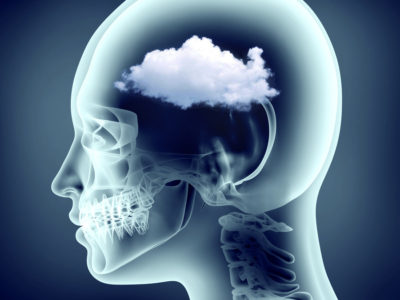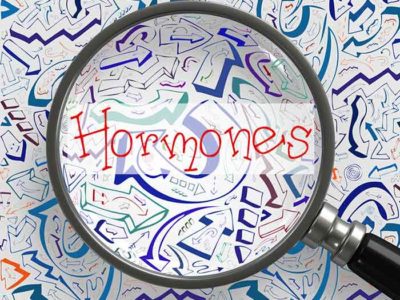Table of Contents[Hide][Show]
We’re all familiar with the classic signs of aging: gray hair, forgetful “senior moments,” and creaking joints when you first get out of bed.
But there’s one common sign of aging that you might not be aware of: fluctuations in your hormone levels.
As you get older, your glands will decrease the production of many of the hormones your body creates naturally, causing a number of issues and symptoms throughout your body. These can include weight gain or loss, trouble sleeping, mood swings, skin conditions, and more.
To help you overcome these and other medical issues, doctors often prescribe bioidentical hormones.
But what are bioidentical hormones? They vaguely sound like something out of a sci-fi movie, yet they are a proven treatment method.
Let’s take a deeper look at bioidentical hormones, how they function, and how you might be able to benefit from them.
What Are Hormones?
Hormones are your body’s messengers. Without them, there would be no communication between the various parts of your body and your brain. They are produced by your glands and secreted into your bloodstream. From there, they travel to tissues and organs to influence their behavior and functions.
Some of the processes affected or controlled by your hormones include:
- Growth and development
- Metabolism
- Sexual functions
- Reproduction
- Cognitive function and mood
- Body temperature and thirst
Your glands secrete hormones in minuscule amounts, but even so, they are extremely powerful. The slightest deviation from the normal quantity can have severe effects on your mind and body.
Some of the consequences of a hormonal imbalance include:
- Weight fluctuations
- Irregular periods
- Trouble sleeping
- Skin conditions (such as acne)
- Digestive issues
- “Brain fog”
Related
Are You Suffering From Brain Fog? Here Are 21 Surefire Ways To Keep Your Mind Sharp
As we age, our bodies deteriorate and our brains are no exception. Keep your brain in tiptop shape and keep brain fog at bay with these tips.
How Are Hormonal Imbalances Treated?
Hormonal imbalances can swing in either direction, either too much of a hormone or too little. When one hormone goes up, it’s “opposite” hormone goes down—and vice versa. This is what causes the so-called “imbalance.”
- A hormonal imbalance caused by an overactive gland that leads to an excess of some hormones in your bloodstream. For example, hyperthyroidism occurs when your thyroid gland produces too much of the hormone thyroxine. This can accelerate your metabolism, leading to unintentional weight loss and an irregular heartbeat.
In this case, your physician may prescribe medication to slow down hormone production.
- A hormonal imbalance can also be due to underactive glands, causing your hormone levels to be lower than the norm. If your thyroid gland doesn’t produce enough of the hormone thyroxine, it will lead to hypothyroidism. Some of the effects include obesity, joint pain, infertility, and heart disease.
If this occurs, bioidentical hormone replacement therapy may be the solution.
But what exactly are bioidentical hormones, and how do they differ from your body’s natural hormones? Let’s dive in.
What Are Bioidentical Hormones?
Bioidentical hormones are man-made hormones that are very similar to those produced by your body. If your body’s natural hormones are low or off-balance, bioidentical hormones can be used as an effective treatment.
Some of the most commonly matched hormones include estrogen, progesterone, and testosterone.
How Are Bioidentical Hormones Prescribed?
If you are experiencing symptoms that indicate a lower than ideal hormone level, your physician will run tests to confirm the diagnosis. This could include blood, urine, or saliva testing to check your hormone levels.
If your tests show that you need to raise your hormone levels, your doctor may prescribe bioidentical hormone therapy.
Bioidentical hormones can be created in one of two ways:
- They can be pre-made by a drug manufacturer.
- They can be customized by a pharmacist based on your doctor’s orders. This process is known as “compounding.”
If your doctor prescribes bioidentical hormones, you’ll have several options for taking them. The most common ways of receiving hormone therapy include pills, patches, creams, gels, shots, and implanted pellets. Don’t be surprised if you have to try more than one method to find the best solution for you.
Once you begin taking bioidentical hormones, your doctor will monitor you closely to make sure your symptoms are alleviated. They may need to adjust the dose or delivery method for optimum results.
Bioidentical Hormones vs. Synthetic Hormones
Bioidentical hormones have the same molecular structure as the hormones produced by your body. Synthetic hormones have a different molecular structure, but your body can convert them to a usable form.
Both of these forms of hormones are made in a lab. However, while bioidentical hormones are made from plant products, synthetic hormones are produced from man-made chemical compounds.
Although many patients prefer the “natural” reputation of bioidentical hormones, neither one has been proven safer or more effective than the other.
Are Bioidentical Hormones Safe?
This is, understandably, a big question for anyone who is prescribed hormone therapy. After all, any time you tweak the chemicals of your body, you want to be sure that what you are doing is, in fact, medically sound.
So just how safe are bioidentical hormones?
The Food and Drug Administration (FDA) has approved many pre-made bioidentical hormones. Those that have been approved have gone through vigorous testing and must meet the FDA’s strict standards. They are tested for safety and purity, and all of the doses must have the correct amount of hormones.
However, the compounded forms, each of which is unique, have not been approved by the FDA. Does this mean that they are unsafe? Not necessarily. Many of them are plant-based (most commonly made from yams or soybeans) and most of them contain the same or similar ingredients as the pre-made, FDA-approved hormones.
However, they can also contain additional ingredients, including hormones that have not been cleared by the FDA. If you’re worried about the safety of bioidentical hormones, talk to your doctor to make sure you understand all of the possible risks.
Benefits of Bioidentical Hormones
Bioidentical hormone therapy is a great way to relieve many of the symptoms you experience from having low hormone levels.
It can improve many aspects of your life, including:
- Raising your energy level
- Improving your sleep
- Increasing your libido
- Protecting your bones
- Increasing your good cholesterol
- Alleviating depression and anxiety
Depending on the actual hormone you are boosting, there will be other benefits, as well.
Bioidentical Hormones: Side Effects
Are bioidentical hormones safe to take? Once again, we need to differentiate between the side effects of pre-made and compounded bioidentical hormones.
- Pre-made bioidentical hormones that are FDA-approved must submit extensive paperwork and research, including any known side effects.
- Pharmacies that compound bioidentical hormones, though, do not have to submit paperwork since they aren’t FDA-approved.
On the surface, this may make it seem as though compounded bioidentical hormones are safer since they don’t list side effects. But the reality is that they simply aren’t known.
In fact, either form of bioidentical hormones can have side effects. Luckily, they are usually short-term and not severe.
Some of the most common side effects of bioidentical hormones include:
- Weight gain
- Blurred vision
- Fatigue
- Skin issues
- Headaches
- Indigestion
- Mood swings
You may also experience skin irritation or redness if you get a hormone shot or use a cream, gel, or patch.
For the most part, side effects will occur when you first begin taking them. This is largely due to your body adjusting to increased hormone levels. Even though it’s simply raising your hormone level to a standard level, your body still needs time to get used to it. And, your doctor may need to tweak the dosage a few times to find the best one for you.
Bioidentical Hormones: Menopause
One of the most common uses for bioidentical hormone therapy is to alleviate the symptoms of menopause.
As women age, their ovaries produce fewer hormones, especially estrogen, progesterone, and testosterone. This is what leads to many of the discomforts associated with menopause or perimenopause. Many women feel that these symptoms are part of the aging process, but it doesn’t have to be that way.
Some of the classic menopause/perimenopause symptoms that can be alleviated with bioidentical hormones include:
- Hot flashes
- Night sweats
- Headaches
- Insomnia
- Vaginal dryness
- Bone loss
- Heavy or long periods
- Fatigue
- Mood swings
- Memory loss
If you are experiencing these symptoms, bioidentical hormones can be used to raise the levels of estrogen, progesterone, and testosterone in your body. This will help reduce or even eliminate many of these symptoms.
Final Thoughts
Do bioidentical hormones work? All of the signs point to a resounding yes!
By closely mimicking the hormones that your body should be producing, they can help your body restore its correct hormonal balance. This can get your body “back on track” with the right hormone levels, alleviating many of the symptoms you may be experiencing.
You don’t have to accept symptoms such as fatigue, decreased libido, bone loss, mood swings, or “brain fog” as part of the aging process. Not when bioidentical hormone therapy can ease your journey into your golden years!





